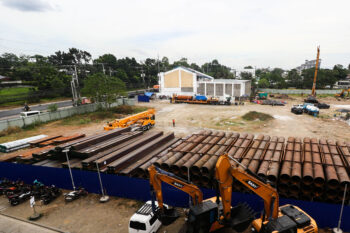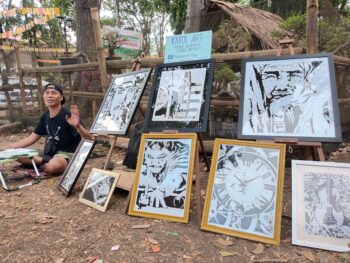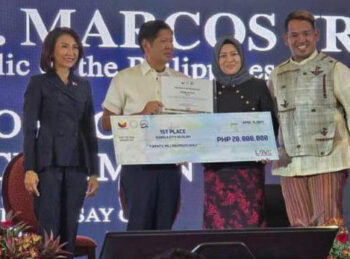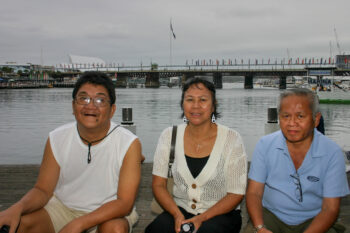SURIGAO DEL NORTE (MindaNews / 20 June) – In Agusan del Norte, Caraga last month, the police arrested a salesman for the latter’s social media post criticizing President Rodrigo Duterte being crazy. In Surigao City, Surigao del Norte, also in Caraga Region this month, the city’s Police Station posted on its social media account a photo showing several persons engaged in training and designated the depicted activity as involving a training of the New Peoples’ Army (NPA) with members of the National Union of Journalists in the Philippines (NUJP).
In Butuan City, also in Agusan del Norte, the city’s Police Station posted a picture depicting a meeting involving the alleged propaganda lines of the NPA, in conjunction with party-list progressive organizations like Bayan Muna. In Agusan del Sur, local police authorities initiated a complaint against more than 400 respondents for non-bailable offenses, alleging involvement in singular armed action of the NPA by legitimate and progressive personalities from labor unions, peasant organizations, religious, health and other marginalized sectors.
In all these recent instances, law enforcement appears pouncing on criticisms, resistance or opposition, from either individuals or organized sectors, legitimate or otherwise. In most cases, law enforcement trained its guns, so to speak, not only at the armed resistance represented by the NPA but also at unarmed civilians or their groups who are being forcibly associated to the former through the scheme of “red-tagging” or being labelled as enemies of the state.
In these instances however, what appears pivotal, to law enforcement’s run, is the role of the targeted individuals or groups in the social arrays of criticisms against the government and its anti-people actions and policies. Noticeably, the usual targets of red-tagging are the most active, so called activists, conscientious, vocal, consistent, forceful and organized critics, regardless of their lawful standing in the society.
At the national level, a court of law recently convicted Maria Ressa and former Rappler researcher-writer Reynaldo Santos for cyber libel under RA 10175. The National Telecommunication Commission (NTC), through its regulatory function and by not issuing a provisional authority, caused the shutdown of ABS-CBN upon the non-renewal of its franchise. Even in these actions involving the imposition of pertinent laws, the fangs of government are directed at media outlets or personalities mostly critical to it or are object of hostility from President Duterte.
In the case of Maria Ressa and Reynaldo Santos, while it involves a court supposedly independent in law, there is no denying that Rappler and its head Maria Ressa are consistently critical to the anti-drug war, extrajudicial killings and human rights record of the government of President Duterte. There is public admission from the presidential spokesperson regarding the appointment to government posts of certain personalities related to the complaining party in the case and the judge of convicting court. What thus appear to be crucial to public examination of the implementation of pertinent laws are the critical roles of ABS-CBN and Rappler in the social arrays to the government of President Duterte.
In such social course taken by law enforcement or implementation, there can be no doubt that the Anti-Terrorism Bill, recently passed in rush by the Lower House as House of Representatives Bill No. 6875, by way of adopting Senate Bill No. 1083, will take similar track rolling down the edges of social criticisms and activisms. Its broad and vague terms, which could even comprehend legitimate exercise of basic rights, the authority given to Anti-Terrorism Council to order an arrest on mere suspicion or without filing any formal charge in court, detention for a maximum of 24 days, designation of an organization or individuals as terrorist, surveillance of private communications and freezing of assets and funds, all these expressly provided under the proposed law, are evidently designed or susceptible to such enforcement or implementation that suppress or muzzle criticisms to the conduct of the government and public officials. That Anti-Terrorism Bill, which clearly contravene the Constitution in so many of its provisions as to arrest and detention without judicial warrant, designation or temporary proscription as terrorist without due process, surveillance and freezing of assets and funds without prior notice and hearing, makes its enforcement or implementation prone to abuse.
What comes out evil from legislative mill can be so much evil in its implementation. With the co-optation of Congress to such unconstitutional act, the Judiciary and Fourth Estate should always take stock of their independence, as they are so mandated to help guarantee democratic freedoms and accountability of the government and public officials. Aside from independent judiciary and free press, the Filipino people can only, and will have to, rely on their collective strength and courage in fighting for and achieving their democratic rights and well-being, their national interests and aspirations.
[MindaViews is the opinion section of MindaNews. Upper Right Hand is a revolving column of the Union of People’s Lawyers in Mindanao (UPLM). Atty. Jose V. Begil Jr. is a private practitioner in Surigao del Norte. He is the immediate past Chair of UPLM and also the immediate past Vice President for Mindanao of NUPL.]







